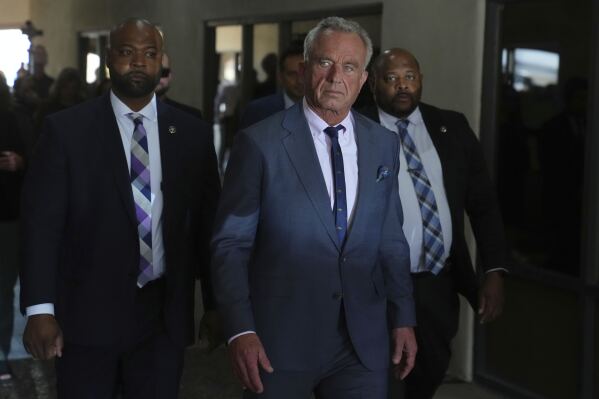During his inaugural press conference as the newly appointed U.S. Secretary of Health and Human Services, Robert F. Kennedy Jr. made a series of controversial statements regarding autism that have ignited significant public outcry. Kennedy referred to autism as an “epidemic” and made sweeping generalizations about individuals on the autism spectrum, asserting that they “will never pay taxes, hold a job, go on a date,” among other claims. These remarks have been widely criticized as false and stigmatizing by autism advocates, medical professionals, and families.
Public and Celebrity Responses
Kennedy’s comments have drawn condemnation from various quarters, including celebrities who are parents of children with autism. Rosie O’Donnell and Holly Robinson Peete publicly refuted Kennedy’s assertions, highlighting the achievements and capabilities of their children. Peete emphasized that her son, who is on the autism spectrum, has held jobs and is thriving, directly contradicting Kennedy’s claims.

Contradictions Within the Kennedy Family
Kennedy’s statements also stand in stark contrast to the legacy of his aunt, Eunice Kennedy Shriver, who founded the Special Olympics to empower individuals with intellectual disabilities, including those with autism. The organization continues to support millions of athletes worldwide, promoting inclusivity and challenging stereotypes. Kennedy’s remarks have been seen as undermining this legacy.
Medical Community’s Rebuttal
Medical experts have refuted Kennedy’s characterization of autism. Dr. Catherine Lord, a leading autism researcher, stated that there is no such diagnosis as “full-blown autism,” and that individuals on the spectrum exhibit a wide range of abilities. She emphasized that many adults with autism have been historically underdiagnosed or misdiagnosed, and that Kennedy’s remarks perpetuate harmful misconceptions.
Advocacy Groups’ Opposition
The Autistic Self Advocacy Network (ASAN) has expressed strong opposition to Kennedy’s appointment and statements. In a public statement, ASAN criticized Kennedy for spreading misinformation and promoting policies that could harm individuals with disabilities. They highlighted his past proposals, such as sending individuals with psychiatric conditions to “wellness farms,” as indicative of a broader pattern of harmful rhetoric and policy suggestions.
Calls for Evidence-Based Policy
The Autism Society has also voiced concerns about Kennedy’s stance, emphasizing the need for evidence-based policies and respect for the lived experiences of autistic individuals and their families. They criticized Kennedy’s failure to reject debunked vaccine theories and stressed the importance of moving forward with scientifically grounded approaches to autism research and support.

The Broader Implications
Kennedy’s statements not only undermine the experiences and achievements of countless individuals with autism but also risk influencing public perception and policy in detrimental ways. By framing autism as a tragedy or burden, there’s a danger of diverting attention and resources away from supportive measures that promote inclusion, understanding, and empowerment.
Conclusion
Robert F. Kennedy Jr.’s recent remarks on autism have sparked significant backlash from various sectors, including medical professionals, advocacy groups, and members of his own family. His statements have been widely criticized as perpetuating harmful stereotypes and misinformation. As discussions continue regarding his role and policies, there is a growing call for leadership that prioritizes evidence-based approaches and respects the dignity and capabilities of individuals on the autism spectrum.

















